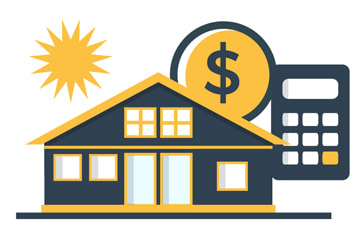Finding a Rental in Auckland - The Definitive Guide to Securing a Home
Find the perfect Auckland rental with ease using our guide. Our guide explains the renting process, rental listing websites and must-know facts and tips to search, and secure the best property.
Updated 19 August 2022
Summary
Please note: This guide does not specifically refer to finding a room in a flat, but the principles generally apply. The rights of tenants are not covered in this guide - extensive information can be found on our rights and obligations of tenants, landlords guide.
Our cover covers:
Summary
- With house prices in New Zealand growing increasingly unaffordable, renting has become a long-term reality for many Aucklanders.
- Searching, applying and ultimately renting a place is a long-winded, complicated and costly process. Ask any Aucklander and one of the top three biggest criticisms of the city will be the cost of renting. With rent sometimes taking up to 50% of gross salaries in Auckland, it’s no wonder that households are feeling the pressure.
- Our guide has been published to explain the renting process, cover the top websites to find places to rent and walk through the top facts you need to know when looking to rent in Auckland. We also cover a range of frequently asked questions.
Please note: This guide does not specifically refer to finding a room in a flat, but the principles generally apply. The rights of tenants are not covered in this guide - extensive information can be found on our rights and obligations of tenants, landlords guide.
Our cover covers:
MoneyHub Founder Christopher Walsh shares his experience of flatting in Auckland:
|
"This guide looks at renting an entire property rather than a room in a flat, which I'll address briefly to help anyone looking for a room".
"I'd strongly suggest anyone looks for a flat that's close to transport connections and close to a good-value supermarket. Driving and food are huge costs - if you use Auckland Transport, you'll save significant money from day one. I couldn't have managed in Auckland without a car due to the nature of my job, always driving around visiting clients, but if you're studying or have a fixed workplace, I'd argue cars are a huge waste of money if you don't need it for work". "The worse idea is to 'bling' a rental. This is where you pay for a location and a 'feeling' of wealth but have very little spare money to do anything else but stay home and look at the furniture. It's more common than you think". "When I moved to Auckland, I probably went too much on the other extreme, living in a somewhat dubious flat share on Richmond Road for an unbelievable $70/week. It was a total dive, but the ten people living there were fantastic. Sadly when they left, some undesirables moved in, prompting me to leave shortly after and pay 'market prices'. It wasn't the most flash place on the block, but it was convenient and close to the CBD". "Whatever you do, make sure you find the area convenient. Too many flats are a pain to get to, which you'll feel at the end of a big day at work or a long study day". |
MoneyHub Founder
Christopher Walsh |
Must-Follow Steps for Finding a Rental
Our steps are based on the real-life experience of our research team - if you have any suggestions, please contact our research team.
1. Establish a reasonable budget.
The first step in looking for a place is to identify how much you can afford to spend on rent per week. What you can afford each week varies depending on your financial situation, but Aucklanders generally spend 30-50% of their post-tax income on rent. You'll also want to consider additional costs not included in the weekly rent, such as electricity, utilities and phone bills (although some of these can be included in the rent depending on how the landlord structures the lease).
Expect to pay more in some areas than elsewhere in the city. For example, Parnell will be significantly more expensive to rent compared to Manukau or Karaka, given its proximity to the CBD. As a general rule of thumb, the further away you are from the centre of Auckland, the cheaper it will be to rent.
However, that doesn’t mean you can’t set crazy expectations for what you’re willing to pay each month. Listed rental prices can fluctuate wildly even within areas, so it’s important to find the most accurate rental information for each suburb.
An example of how various suburbs rank by the cost of living includes:
As of June 2022, the average weekly rent for a two-bedroom home in Parnell is $690 per this guidance. But rents can range from $620 to $790 depending on the home's style, location, and quality. Whatever the rental cost, you’ll have to put down a bond/rental deposit, the first month’s rent, or potentially more.
Expect to pay more in some areas than elsewhere in the city. For example, Parnell will be significantly more expensive to rent compared to Manukau or Karaka, given its proximity to the CBD. As a general rule of thumb, the further away you are from the centre of Auckland, the cheaper it will be to rent.
However, that doesn’t mean you can’t set crazy expectations for what you’re willing to pay each month. Listed rental prices can fluctuate wildly even within areas, so it’s important to find the most accurate rental information for each suburb.
An example of how various suburbs rank by the cost of living includes:
- High cost of living (urban) = Parnell, Auckland CBD, Orakei, Herne Bay, Mount Eden, Newmarket, Ponsonby, Grafton
- Medium cost of living (suburbs) = Howick, Pakuranga, Sylvia Park, Onehunga, Takapuna, Avondale
- Low cost of living (rural) = Karaka, Red Beach, Silverdale, Whitford
As of June 2022, the average weekly rent for a two-bedroom home in Parnell is $690 per this guidance. But rents can range from $620 to $790 depending on the home's style, location, and quality. Whatever the rental cost, you’ll have to put down a bond/rental deposit, the first month’s rent, or potentially more.
2. Decide what you want out of your rental and set realistic expectations.
There are plenty of great areas to rent in Auckland. However, each area will have distinct characteristics that make it great for some and not so great for others. Before looking for a place to rent, consider what you’re looking for in your neighbourhood. Top things to consider include:
Know This: Many people want to live in Auckland's nicest, safest and trendiest areas. Unfortunately, there’s only a limited number of rentals available in any area, and some areas are smaller than others. The reality is that not everyone will get to stay in their ideal neighbourhood. This lack of housing is especially true in Auckland, New Zealand’s most populous city, where the rental market in Auckland is very competitive.
With a relatively low supply of housing stock, bidding wars aren’t uncommon in the most popular areas of Auckland. So stay open-minded about where you could live and try not to restrict yourself to one neighbourhood.
- Location: Do you want to have a shorter commute and live nearer to work, be within walking distance for your kids to walk to school, have good access to public transportation or live next to fun activities such as the beach, cafes or restaurants?
- Length of the tenancy agreement: How long do you want to live in the area/property? Do you want to sign a short or long-term lease?
- House elements: Do you want a completely fenced-off property, large storage space or covered parking?
Know This: Many people want to live in Auckland's nicest, safest and trendiest areas. Unfortunately, there’s only a limited number of rentals available in any area, and some areas are smaller than others. The reality is that not everyone will get to stay in their ideal neighbourhood. This lack of housing is especially true in Auckland, New Zealand’s most populous city, where the rental market in Auckland is very competitive.
With a relatively low supply of housing stock, bidding wars aren’t uncommon in the most popular areas of Auckland. So stay open-minded about where you could live and try not to restrict yourself to one neighbourhood.
3. Do an extensive online search for places to rent.
Searching for places to rent online is the cheapest and easiest way to look for vacant spaces. The top websites to do this are:
The other way to get a feel for a neighbourhood is to walk through it (during the day and night). Walking through neighbourhoods you're looking to rent in can also help you find places for rent that aren't listed online yet. Exploring neighbourhoods can give you a jumpstart on putting a bid in and potentially renting a place without competing with others.
- Trade Me Property
- Realestate.co.nz
- One Roof
- homes.co.nz
- Real Estate Agent Websites (Ray White, Barfoot and Thompson, Century 21, Crockers etc.)
- Facebook groups
The other way to get a feel for a neighbourhood is to walk through it (during the day and night). Walking through neighbourhoods you're looking to rent in can also help you find places for rent that aren't listed online yet. Exploring neighbourhoods can give you a jumpstart on putting a bid in and potentially renting a place without competing with others.
4. Physically view the property in person.
Once you’ve found a property in the right area that you think could be a good fit, it’s key to view the space physically. The landlord should be able to set up a time for you to view the property. When viewing the property, don’t forget to ask some key questions, including:
- When could you move in once the lease is signed?
- How long is the lease period?
- Does the rental come furnished?
- How many people can stay on the property? Are there any restrictions on flatmates?
- How quiet is the property? Is it properly insulated?
- Does a third party maintain the outdoor/garden area? Will you need to pay extra to maintain it?
- Is the rental a smoke-free zone?
- Are pets allowed?
Securing Your Ideal Rental - Steps to Follow
Once you’ve identified your ideal place, it’s time to try and beat out other prospective renters. The top things to consider when looking to win your target property rental include:
1. Send the rental application form to the landlord as early and as comprehensively as possible.
2. Demonstrate a good Credit Score.
3. Sign the tenancy agreement.
1. Send the rental application form to the landlord as early and as comprehensively as possible.
- Try to make your case that you’re a great tenant. Explain that you’ll respect their property and won’t cause any trouble. The landlord’s nightmare is to sign a lease agreement with a troublesome tenant. The easier you can convince the landlord you’re an ideal tenant, the more likely the landlord will pick your rental application from the others.
2. Demonstrate a good Credit Score.
- You'll want a reasonably high credit score when applying for a rental. A credit score tells potential third parties how good you are at paying off your debts/obligations and whether you're generally good with finances.
- From the landlord's perspective, the higher your credit score, the more likely you will pay your rent each week. In addition, landlords will typically ask about your savings and spending habits when considering you as a potential tenant.
- Our guide to credit scores explains how to get control of your credit history and improve your scoring.
3. Sign the tenancy agreement.
- Once you’ve sent the rental application and have been successful, the next step is to sign the tenancy agreement. Again, the landlord or real estate agent should send this over relatively soon after selecting you.
- A tenancy settlement outlines the rights and obligations agreed upon by both the tenant and the landlord. A tenancy agreement will include key provisions such as the contact details, weekly lease amount, frequency of payment, bond amount, the type of tenancy and the start and end date of the tenancy. In addition, any provisions negotiated with the landlord can be added to the tenancy agreement. Examples include the ability to have pets in the rental, waiving of any rights or the ability to sub-lease the property.
- It’s recommended that you and the landlord communicate clearly and sign the tenancy agreement soon after concluding negotiations to avoid possible misunderstandings in the future. You’ll be given a copy of the signed tenancy agreement for record-keeping. It’s recommended to keep this safe in case of a dispute with the landlord.
Top Things to do AFTER You've Signed the Lease
1. Organise to pay the bond payment.
2. Extensively document the property before moving in
3. Find roommates (if applicable).
4. Move into the rental.
- A bond is a requirement to pay money to your landlord upfront as safety in case of unpaid rent or damage caused to their property. The bond can be any quantity the landlord decides up to a legal limit of 4 weeks' worth of rent maximum.
- All bond cash is lodged and held in escrow/trust with Tenancy Services, a division of the Ministry of Business, Innovation and Employment (MBIE). You'll be given a receipt of the bond, which you should keep in a safe place in case of a dispute.
- However, some landlords may not require a bond (although many landlords do). Therefore, whether a landlord requires a bond will depend on the landlord.
2. Extensively document the property before moving in
- Your landlord should have inspected the property and removed all personal belongings before your tenancy started. However, it pays to have your record of the state of the property before you move in.
- Take pictures and note the property's condition before properly moving in. Then, in case of a dispute, you have documentation of what the property was like before you moved in as proof in case the landlord tries to take you to court for alleged damages you've made. In addition, you can prove they existed before you occupied the space.
- After moving into the property, if you find any required repairs or renovations, it's recommended to contact your landlord early and notify them of the situation. Notifying the landlord of any issues ensures you aren't liable for any damage, and the landlord can repair/renovate the property before settling in.
3. Find roommates (if applicable).
- Most of the time, unless explicit in your tenancy agreement, your landlord can't increase the rent when you get a roommate. Finding roommates can be a great way to reduce renting costs while also making your place more lively.
4. Move into the rental.
- With the documentation finished and the bond/rent paid, you can now move into your new home
Must-Know Facts about Renting
1. Be diligent and apply to rent out places you like as early as possible.
2. Know your rights as a tenant.
One of the most difficult situations for renters is a dispute with their landlord. If this happens (and it happens more often than people think), make sure you understand your contractual and legislative rights (through the Residential Tenancies Act) given to you as a renter. Under the legislation, landlords are responsible for providing certain minimum things to renters. Some of the key things the landlord must do can include:
3. Be careful of evictions.
4. Try leaving the rental in the same condition before you moved in.
- Timing is essential when it comes to renting out your dream place. When a property is in hot demand, it’s typically either the person willing to pay the most or the person who’s the most persistent/first who wins the rental.
- To get a headstart on the other people looking at renting your target property, try to scout new properties as soon as they’re listed.
- If you’ve found one that you’re keen on that hasn’t come onto the market yet, try and reach out to the landlord and see if you can view the property early. Then, if you’re happy with it, you can pay to apply for the place early. Sometimes the landlord may accept if it’s within their expected rent range, as each week it sits vacant is money the landlord isn’t getting.
2. Know your rights as a tenant.
One of the most difficult situations for renters is a dispute with their landlord. If this happens (and it happens more often than people think), make sure you understand your contractual and legislative rights (through the Residential Tenancies Act) given to you as a renter. Under the legislation, landlords are responsible for providing certain minimum things to renters. Some of the key things the landlord must do can include:
- Ensure the property is well maintained and in a reasonable condition.
- Ensure all building regulations and health/safety standards are met
- Ensuring the tenant has quiet enjoyment of the property (which includes reasonable notice if they intend to inspect the property).
- Let the tenant know if the property is being listed for sale.
- Give reasonable notice if the landlord looks to increase the rent rate or end the tenancy agreement.
- Meet the legislative obligations around Healthy Homes Standards and insurance.
- To not interfere with a tenant’s belongings.
- More details: You can find more about tenant rights through our comprehensive guide here or here at Tenancy Services.
3. Be careful of evictions.
- You can get evicted for various things, including a failure to pay the rent, unlawful use of the property, public nuisance (such as too much noise) or damage to the property. For more information on evictions, see the Tenant Protection Association’s discussion and what tenants should know here.
4. Try leaving the rental in the same condition before you moved in.
- Whether the landlord wants to move back into the property or your situation changes resulting in you needing more space and upgrading to a larger property, leases inevitably end.
- If you want the full amount of your bond back (initially paid upfront at the start of the lease agreement), you don't want the landlord to have any claims against you that could reduce this amount. Therefore, it's important to try leaving the property close to the same state as you found it. Ensuring the property is in good condition gives you the best chance of getting your bond back in full.
Frequently Asked Questions
Where can I find the most up-to-date renting data? What should I pay?
The top place to find renting data is ENZ. ENZ is an independent real estate and rental data provider to help New Zealanders make more informed decisions. The majority of rental information detailed in this guide is sourced from Tenancy Services, a subsidiary of the Ministry of Business, Innovation and Entrepreneurship (MBIE).
How does rent control work? Is there rent control in New Zealand?
- Rent-controlled properties limit how much landlords can raise the rent each year. Rent controls protect tenants and prevent landlords from manipulating tenants to act as a quasi-eviction without going through the proper procedures.
- While popular in other countries abroad, the New Zealand does not have laws implementing rent controls. In other words, landlords in New Zealand can increase rents to anything they want without limit.
- Despite media reports of landlords wanting to increase rents, exorbitant rent hikes shouldn't be too concerning, as landlords will likely still need to stay competitive with the broader area/market. If they hike rents by 15% or 25%+, prospective tenants would just rent the another property at a substantial discount. Other media stories suggested rents were decreasing throughout 2022 which arguably limits the need to legislate for rent control or rent caps.
What happens to the bond I paid at the start of my lease when my lease ends?
When you move on from the property at the end of your tenancy, the bond is refunded in full by Tenancy Services.
Alternatively, your landlord may contact you regarding any reduced bond payments if there are claims against you (for example, damage to the property, unpaid water bills, cleaning costs etc.). Leave the property in as clean a state as you can when leaving and pay off any final bills to avoid any additional costs.
Alternatively, your landlord may contact you regarding any reduced bond payments if there are claims against you (for example, damage to the property, unpaid water bills, cleaning costs etc.). Leave the property in as clean a state as you can when leaving and pay off any final bills to avoid any additional costs.
What are the best places to rent in Auckland?
There are many different suburbs in Auckland, each with distinct flair, uniqueness and relative cost. There isn't one "best" place to rent. However, a couple of factors you should consider when choosing an area to rent include:
Know This: It can also help to ask if you have contacts who have lived or are currently living in the area you’re considering. They will typically know the best things to do in the area, what the neighbourhood is like and whether they recommend you live there. Before you move somewhere, we suggest walking around it to make sure you're comfortable and enthused with the area.
- Closeness to public transport connections
- Typical demographic in the area (heavily young professionals, families, retirees etc.)
- Number and type of stores (supermarkets, malls, restaurants, gyms, beaches, clubs, etc.)
- Proximity to your workplace
- Cultural diversity and depth of history
Know This: It can also help to ask if you have contacts who have lived or are currently living in the area you’re considering. They will typically know the best things to do in the area, what the neighbourhood is like and whether they recommend you live there. Before you move somewhere, we suggest walking around it to make sure you're comfortable and enthused with the area.
Should I go through a real estate agent to find a rental?
Typically, you won’t need one. This is because there are enough vacant places for rent that you should be able to find a place without having to work with a real estate agent. However, in extremely popular areas with very little inventory space (such as areas surrounding the Auckland CBD), it may make sense to reach out to one if you cannot find many places online.
You don’t want to work with a real estate agent because it adds another layer of cost to rent out a place. Suppose you successfully sign a lease from a lead generated by a real estate agent. In that case, you will likely have to pay a success fee (typically a % of the first month’s rent) to the real estate agent for finding and facilitating the rental deal.
Our view: If possible, it’s much cheaper and easier to just “DIY” search for rentals.
You don’t want to work with a real estate agent because it adds another layer of cost to rent out a place. Suppose you successfully sign a lease from a lead generated by a real estate agent. In that case, you will likely have to pay a success fee (typically a % of the first month’s rent) to the real estate agent for finding and facilitating the rental deal.
Our view: If possible, it’s much cheaper and easier to just “DIY” search for rentals.
Do rentals allow pets?
It depends. Some landlords are comfortable with all types of pets. Some will only allow certain types (such as cats or dogs), while others rule out having pets. Whether the rental is pet-friendly should be on the listing information. For most people, this is a dealbreaker, so it's best to reach out to the lister as soon as possible before applying for the place if you have a pet.
What do I do if I have a dispute with my landlord about the rental?
- Try to contact your landlord and resolve the dispute verbally in the first instance. Then, you can escalate the issue by issuing a remedy letter. A remedy letter is a way of formalising complaints in writing for the landlord to take action. Again, if this doesn't work, you can contact Tenancy Services.
- The Residential Tenancies Act outlines your landlord’s responsibilities concerning you as a tenant. If your landlord fails to meet his responsibilities by law, you may have a strong case and can claim damages.
- Make sure to document and record all your interactions with your landlord, including what was discussed and any actions both parties said they would undertake (and whether they did those things).
- You can find out more information on disputes with landlords here.
Related Guides
- The Definitive Guide to Renting in New Zealand - our guide explains the right and obligations of tenants, landlords and what happens if something goes wrong






